By Rasha Milhem
One lonely night recently, during a particularly hard time of the coronavirus quarantine, a high school friend and I reviewed our lives and recalled the 2000s with some nostalgia.
We are millennials, born in the early 1980s, when Israel invaded and occupied parts of Lebanon and conflict between the state and the Muslim Brotherhood Movement threatened to destabilise Syria.
We were born in a time of war; there would be a break and then more bloody conflict, and then another respite. The cycle continues.
As children, we chanted the chorus of the Lebanese song Lina Ya Lina, released after the start of the civil war waging just across the border. Holding hands, we would form a circle and sing to a tune derived from a violin concerto by Mendelssohn – not that we knew that then!
And we certainly gave no thought to the words.
Lina. Hey Lina, lend us a needle and a thread
To stitch this dress…we don’t have any string.
Lina. Hey Lina, you are like a star taking us up.
You keep moving to and fro.
You became dizzy and we were dazed.
With a mirror behind a mirror you made us dizzy, too.
For us, it was just a nursery rhyme, innocent and joyful.
It wasn’t until adulthood that I heard the verses, shocked to realise that we Syrians lived the life described in them!
Lina. Hey Lina, there’s no one to protect us.
Every night we have shootings.
There are checkpoints and bullets.
Lina. Hey Lina, there’s no one to protect us.
Yes, we were born at a time of internal conflict and when war in neighbouring Lebanon impacted our country, too.
An economic blockade shaped our lives, with everyday materials missing from the markets. When I was at elementary school, the setting up of the Dima tissue factory was a big deal, but I was too young to understand why a middle-aged woman in the comedy series Five-Star Family (عيلة خمس نجوم) would hide the tissue box as though it were a treasure.
When my mom bought Somalian bananas with blue stickers on them to indicate their quality, she wouldn’t let us take them to school out of respect for the fact that not every family could afford them.
Just a reminder to readers, I’m now talking about the 1990s.
After harsh economic sanctions were lifted somewhat, I started to notice cars with more rounded corners – I mean without the sharp corners of, say, a Mazda 929 or a Peugeot 404. And when I saw the new models on the streets, I just wished that my dad would someday be able to purchase one. Korean cars were everywhere; the economic blockade seemed to be coming to an end.
I can better recall those times by thinking back to what I watched on TV.
For example, in the mid-1990s, the TV mini-series The Siblings (الأخوة) presented symbols of different eras: a red fez and a computer. It successfully depicted ‘the controversial contradiction of time when the past meets the future’. That is how I want to describe it, but I know it is a bit too esoteric for this text, and so just think, Back to the Future (Robert Zemeckis, 1985).
The Siblings was bidding farewell to the times when my grandfather’s and great grandfather’s generations wore the red tarboosh during the Turkish and French occupations and even into the period of coups after independence. While the grandfather in The Siblings persisted in wearing a fez, his grandson could enter a new cyber world when he finally bought the computer he had desired so much. The mini-series was a stepping stone to the new millennium.
I retain blurry memories of The Silk Market (خان الحرير), a Ramadan TV series and, some might argue, a classic. What stands out is the unconventional love story between a merchant’s son and a gypsy singer and the troubles faced by a widow who caught the eyes of men in the neighbourhood.
Though too young to make sense of the political tensions of the 1950s and 60s – the period in which The Silk Market was set – I wasn’t too young to be enchanted by the Aleppo market setting, which brought to life the beauty of silk brocade; the perfume of laurel and of olive soap; the accent of the locals and the sounds of Qudud Halabiya – the music of Aleppo.
I credit The Silk Market with being the source of an emotional attachment I maintain for Aleppo, a city I have never visited. The direction and the cinematography were in the hands of Haitham Haqqi, the Sheikh of Syrian drama.
There was not much time, however, for TV viewing for my classmates and me; there were tough academic hurdles to cross. Our results in the Year 9 exams determined whether we entered a high school or a vocational school. Studying had to be taken seriously and hobbies given up for intensive classes with a private tutor or a parent – there was so much to memorise!
Students were victims of a harsh academic system. If you were to check this out, you would discover every year there were student suicides and even heart attacks caused by the immense pressure.
Still, while preparing for a middle school exam in 1999, I was able to watch some episodes of the historical drama series Hammam al-Qishani (حمام القيشاني). It was considered important because it presented the modern history of Syria following the evacuation of French Mandate troops and the emergence of local political parties.
I found it pretty cool to see on television the historical figures from the history book I had memorised! They became so familiar that watching them on television was almost like seeing the real figures in the flesh.
At the beginning of the new century, I entered high school for the final three years before university, and my passion for watching television was growing.
With the general accessibility of satellite TV, Syrian TV dramas topped those from all over the Arab world. For example, there was the epic series Al-Zeer Salem (الزير سالم), based on a popular tale about war, revenge and heroism, which goes back to the pre-Islamic era in the Arabian Peninsula.
In contrast, there was the family drama series Four Seasons (الفصول الأربعة), screened first in 1999 and then in 2002. Some consider it the best Syrian TV series of all times. It tackles the everyday problems of an extended family in Damascus. On the surface it seems simple, but it has many dimensions, including a psychological depth that is anything but facile.
Four Seasons was broadcast when peace was an unseen gift. Since first viewing it, I’ve survived shelling and bombing, and I’ve witnessed the transformation of the traditional Syrian family structure. I value the psychological truths presented in this TV series, still. However, it is no longer possible to see my fate reflected in its characters’ lives, as I might once have.
When I was still a junior in the English Literature Faculty at Damascus University, I started doing some of my own analysis of the TV series we watched. My siblings, who were my ‘audience’, could be driven mad by this – I took it so seriously.
I explained to anyone who would listen that in Memories of the Coming Time (ذكرياتالزمنالقادم), the character of Mattar, played by the famous Syrian actor Jamal Suleiman, represented the American invasion of Iraq in 2003: Mattar entered people’s lives only to do some sort of harm, and then he would withdraw, leaving devastation behind him.
I contended that literary techniques were clearly being used in Letters of Love and War (رسائلحبوحرب), a drama series set during some of the worst years of the war in Lebanon. Metaphors and symbols in this TV series served to deepen our understanding of the complex – sometimes deeply flawed, sometimes courageously solid – responses to crises.
Syrian TV studios were delivering much more than stereotypical melodramas with clearly marked heroes and villains.
Something quite different to Letters of Love is Unshed Tears (عصيالدمع), broadcast around the time I graduated from university. It opened my eyes to the pure beauty of art, when a setting can ‘breathe’ as though it were alive. There are no climatic points – it has a slow pace but a great deal of balance and strength, like a German automobile!
In the first decade of this century, some of the Syrian TV series could mirror our outer and inner lives. Back then, people were purchasing the latest mobile phones and it wasn’t long before friends and I were discovering online social media. People could see themselves and hear their own voices in those dramas.
The television series we viewed helped create a mood in the country for increased social openness and for a serious look at issues which touched on religion, relationships and politics.
The drama series The Mud Curse (لعنة الطين) was first set in the 1980s and took viewers up to 2010, the year of its production. With its tragic ending, it seemed to foresee the coming hard years for Syria. After being tortured by gangsters, Amer (Maxim Khalil) – the hero, becomes sterile. He is then sentenced to a lengthy prison term on a fabricated charge. After his release, he discovers his beloved Nermeen (Karess Bashar) has become demented because of the tribulations she faced. However, she recognises him – the only person in his village who does. While we were enjoying a short-lived peace in Syria, the series presented brutality and futility.
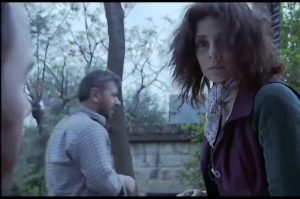
My dear school friend and I reminisced about peace. For the first ten years or more of this century, we concluded, we had had a ‘real’ and ‘normal’ way of life. But the truth now seems to be that those years had escaped the clutches of history and the grasp of war. They are a memory that can provide us some relief, for a moment at least.
If art mirrors reality, it seems we are now doomed to devour drama series that reflect a horrible reality. Or is the alternative pure escapism – to binge on Netflix or the like, if we can? Yet another alternative is that we regress to dreaming of a beautiful past, imagined or real.
An Arabic proverb tells us, ‘On dark nights, the glory of the moon is missed’.
Ms Rasha Milhem is a Syrian translator, journalist, and film-maker. Rasha is writing from Brazil, currently unable to return to Damascus because of COVID-19 disruptions to international flights.
The featured image on this post is from ‘Restart‘, a short film Rasha wrote at the end of a diploma course she completed in 2019. She won the ‘Best Scenario’ award for the film.
rashamilhem@gmail.com
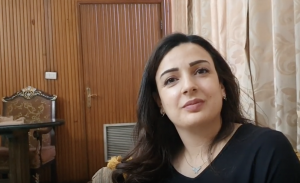


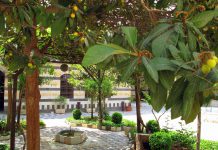
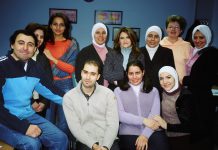
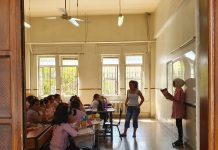
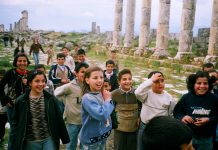

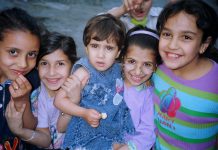


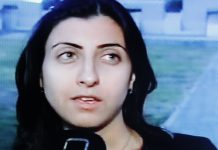
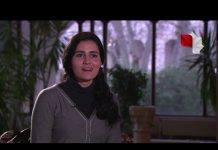
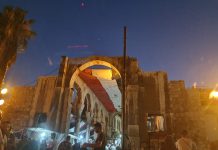

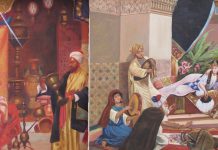
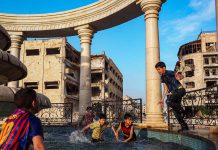
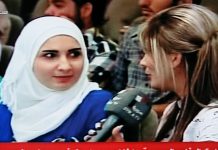
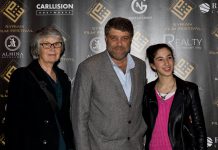


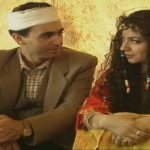

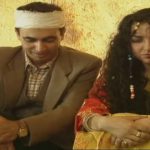
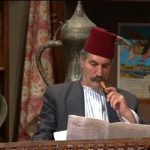
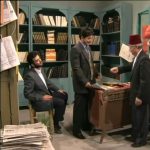
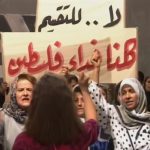
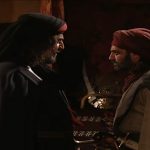
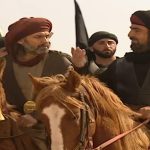
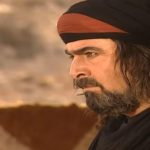
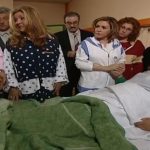
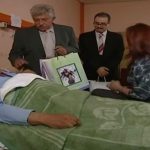
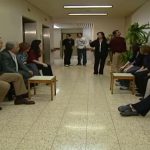
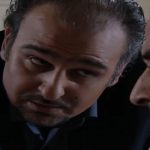
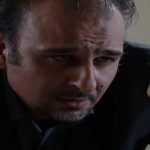
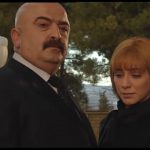
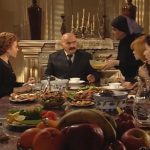
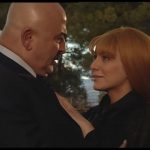
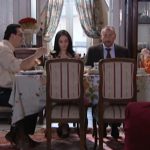
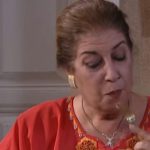
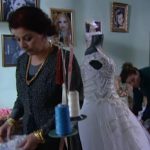






Rasha’s article has received a lot of positive responses from readers, particularly other Syrians (please check Rasha’s Facebook page). We hope it will be technically possible soon for readers to submit their comments under Beloved Syria posts. In the meantime, if you would like your comment posted, please email us at.
Below is feedback sent to me by a former Syrian student at AMES, Melbourne:
Rima
‘The article is very interesting with good narrative and it really does touch my heart. Actually I try to encourage my children to watch these series as I feel these series are part of our culture. I remember the tissue box and the Somalian banana very well as I was born in the early eighties.
Keep going Rash and all Syrians would wait for your next article’
Susan Dirgham
4 August 2020
Please send your comment to the info.belovedsyriaATgmail.com address.